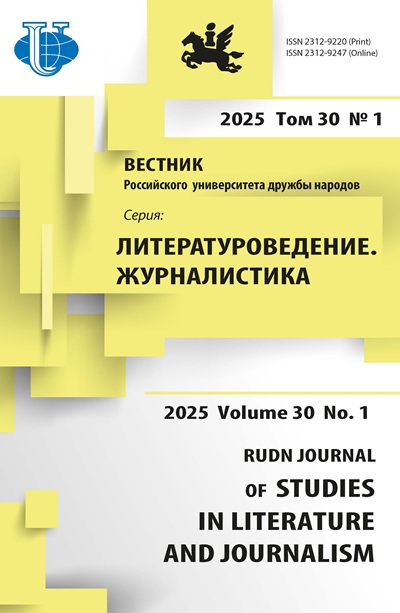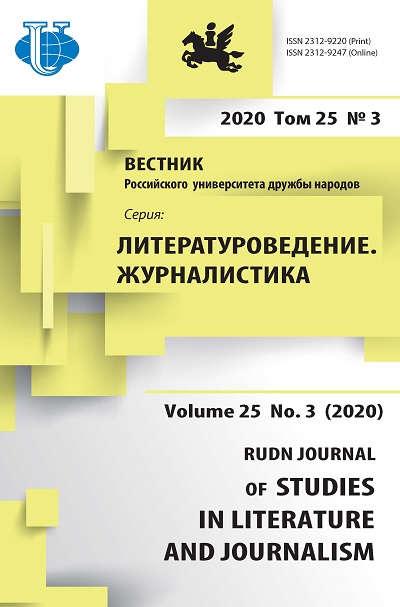Abstract
The article explores the poetics of the image of Moscow in the prose of the outstanding Russian writer of modern times, Yuri Mikhailovich Polyakov. The Moscow text of the Muscovite writer is analyzed in the context of the study of artistic time. Present in all the works of Yu. Polyakov’s image of Moscow is multi-valued, complex, presented in various aspects and correlated with specific epochs. The characteristic features of creating the Moscow text of Polyakov are descriptive reflection based on small details and details, the use of horizontal and vertical communication lines. Special attention is paid to the study of artistic techniques by which the writer, a master of “grotesque realism”, satirically depicts urban realities. The dynamics of changes in the appearance of the capital from Soviet Moscow through perestroika to a modern metropolis that is losing its national identity is traced.
















